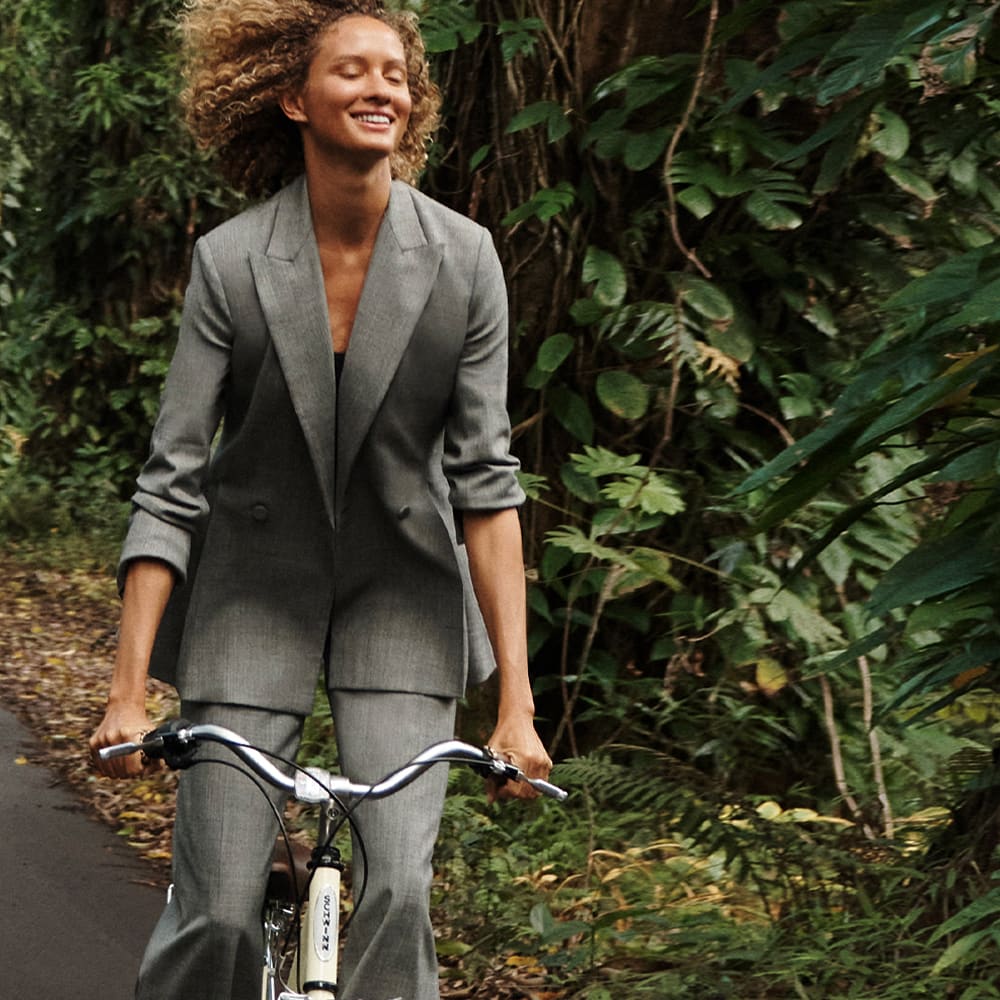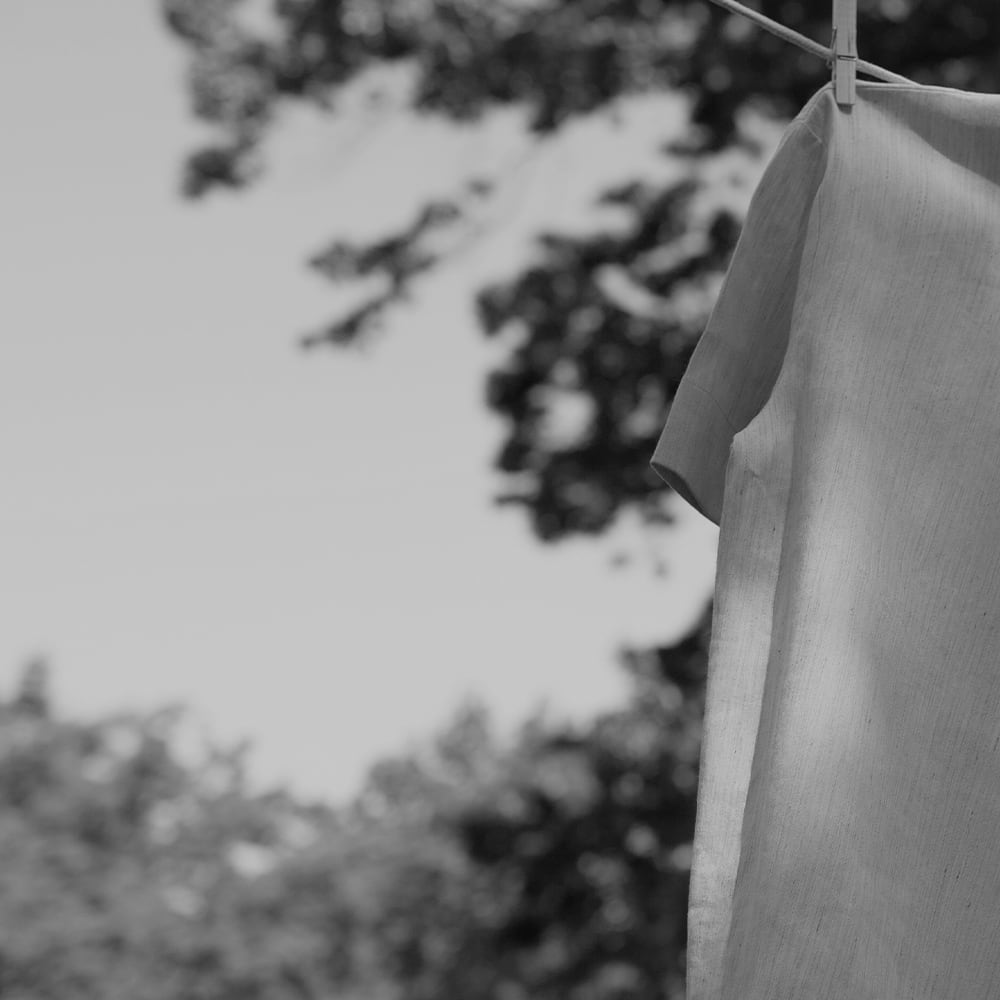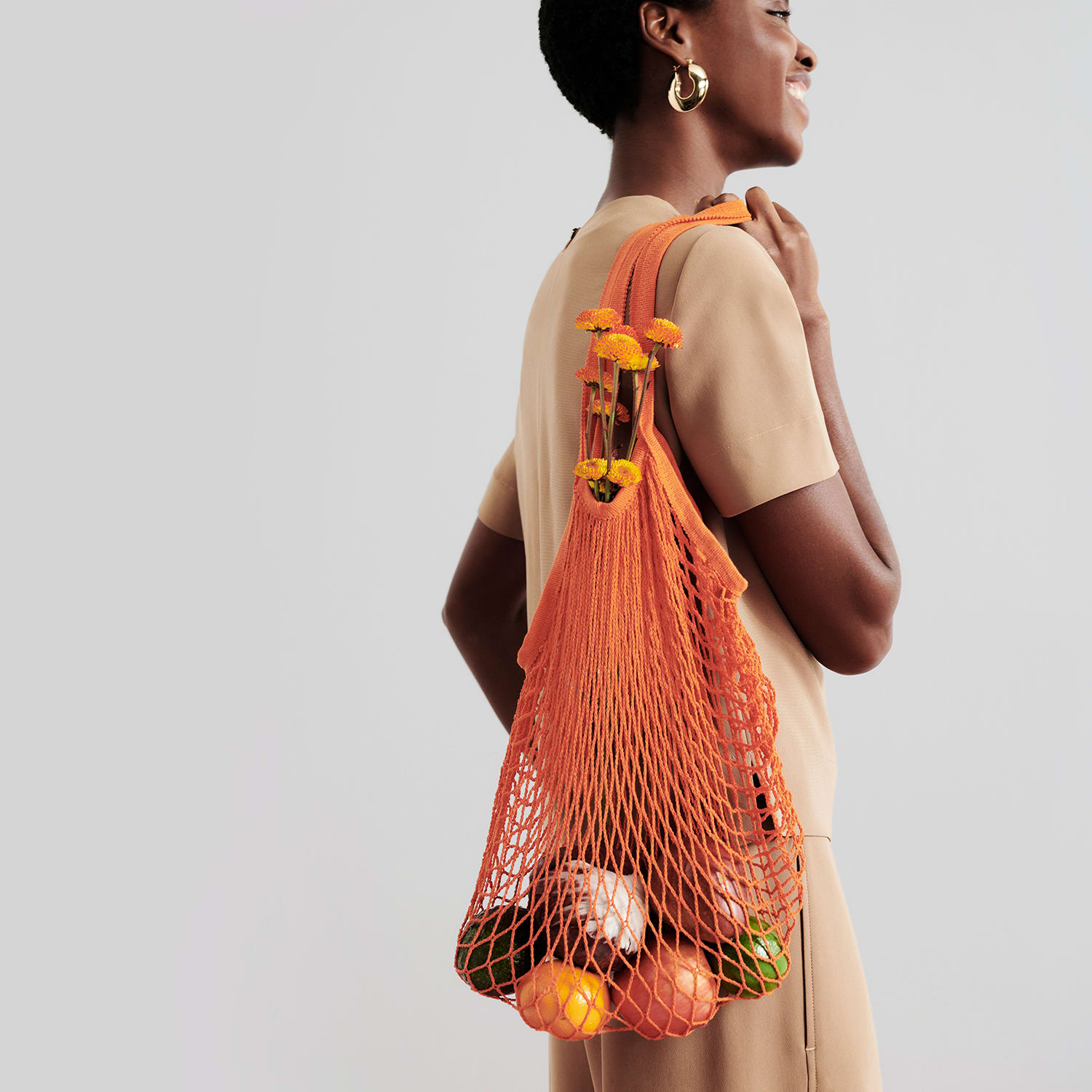Our Commitment to Sustainability
We pride ourselves on designing thoughtful, timeless pieces that are built to last.
From 2020 through 2022, we had the privilege of working with the sustainability advisory firm Eleven Radius to develop a long-term sustainability roadmap based on The UN's Sustainable Development Goals. After an extensive review process with our team and consultants, we homed in on three areas where we believe our company can have the greatest impact. Here are our three objectives and the projects we’re working on right now. Last updated in March, 2024.
Promote gender equality worldwide
...by putting more money into the hands of women—starting with the women throughout our organization and supply chain.
Design and produce long-lasting products
...and provide sustainable solutions for when you’re done with an item.
Use preferred materials
...that minimize toxic environmental impacts and offer more transparency around our supply chain.Promote gender equality worldwide
...by putting more money into the hands of women—starting with the women throughout our organization and supply chain.
Supporting Our Suppliers
Since the beginning, developing strong relationships with our factories has been central to the way we operate. We value our factory partners deeply, communicate with them constantly, and believe in supporting them long-term. Prior to Covid, our team made regular overseas visits to meet with our vendors. All M.M.LaFleur vendors meet local wage and social-compliance requirements, and we regularly inquire about working conditions to ensure that our factory partners are upholding the standards that are important to us.
75% of garment workers are women, and only 2% of those workers are paid a living wage (learn about the difference between minimum wage and living wage here.) This is a major, industry-wide problem that we hope to change one step at a time, starting with our own supply chain.
• 79% of our factories have completed a social compliance audit that looks at both environmental performance and employee working conditions. By the end of 2024, we expect that number to reach 84%. Learn more about our factories here.
• We are assessing each of our partners with a living wage lens, which we started by publishing our factories page (above). By the end of this year, we’ll provide similar transparency around our mills.
• By 2026: Set living wage goals across our supply chain.
• Ongoing: Communicate our progress with customers on an annual basis.
Empowering Our Employees
We are committed to ensuring that M.M.LaFleur is an empowering, rewarding, and joyful place to work. As a women-owned and women-led company whose advisory board is 60% women, it’s important to us that we have a significant and positive impact on our employees’ careers. Here are some of our ongoing initiatives:
• Pay and Leveling Transparency: We have a transparent payscale and leveling system to eliminate the biases that often lead to women receiving less pay for equal work. This payscale was the result of a challenging but rewarding two-year process where we made some mistakes and had a lot of learnings. We are committed to sharing how we made this work in our company with other executives and HR professionals. If you are interested in learning more, please contact us at peopleops@mmlafleur.com.
• Two-Week Annual Office Closure: We offer two week-long HQ office closures per year.
• Paid Parental Leave: We offer 12 weeks of paid leave for all new parents, regardless of gender.
• Hiring: We ensure that the hiring pools for all new roles include candidates from historically underrepresented groups.
Championing the Success of Women Everywhere
Part of living our mission means going beyond our customers and employees to support women everywhere, with the help of incredible organizations like Bottomless Closet, The New York Liberty, The International Rescue Committee, Girl Scouts of the USA, and She Should Run. Over the years, we have donated over $1M to these organizations in financial support and clothing; in 2023 alone, we donated over $29,000 in clothing to Bottomless Closet. We’ve also supported these organizations in other ways, such as by leading career workshops for Bottomless Closet clients and Girl Scouts, bringing awareness to their missions by featuring them in our digital magazine, and facilitating customer donations to Bottomless Closet in all of our stores.
In 2020 and 2024, we ran a program called Ready to Run, in which we offered complimentary clothing loans to women running for office. (Click here to read about the journeys of a few of this year’s candidates!)
Starting in 2023, we took a bold new step: We committed to donating 10% of our yearly profits to organizations that support and promote the success of women.
HOW YOU CAN HELP
• Learn about our partner organizations and their missions, and consider donating to them if you’re able to do so.
• Where possible, shop with companies that work closely with their suppliers and pay fair wages throughout their supply chains.
• If you’re an executive or an HR professional at your company and are interested in learning more about how you can institute pay and leveling transparency, please contact us at peopleops@mmlafleur.com.
Design and produce long-lasting products
...and provide sustainable solutions for when you’re done with an item.
The biggest waste in fashion comes from fast fashion, and as much as 85% of textile waste in the U.S. ends up in landfills. Changing this has always been part of our goal: Since the beginning, we’ve prided ourselves on producing thoughtful, timeless pieces that are built to last, in terms of both durability and style, as well as offering complimentary expert styling services that help you identify the right clothes for your body and wardrobe.
That said, we also understand that wardrobes, dress codes, and sizes evolve over time, and at some point, you may end up with an M.M.LaFleur piece you no longer need. We’re committed to providing customers with easy ways to responsibly get rid of clothes once you’re done with them. In 2021, we launched Second Act
, a customer-to-customer resale marketplace that allows you to seamlessly buy and sell pre-loved M.M. clothing (here’s why resale is the most responsible way to get rid of unwanted clothing). For non-M.M. pieces, we also have a partnership with ThredUp, where you can resell, donate, or recycle your items. Here’s what’s next on our list.
• Update as of September 2023: We are deep in the process of improving our fit standardization, which will help reduce shipments back and forth to our warehouse. You can expect to see more consistent sizing starting with our fall 2023 collection.
• By the end of 2023: Provide customers with detailed instructions on responsible garment recycling.
HOW YOU CAN HELP
• Buy timeless pieces that you think you’ll wear for a long time.
• When you’re done with a garment, consider donating it to Bottomless Closet or reselling it.
Use preferred materials
...that minimize toxic environmental impacts and offer more transparency around our supply chain.
Over the past several years, we’ve begun prioritizing preferred materials that have less of an environmental impact, while maintaining the quality and longevity that’s always been important to us. Using preferred materials means making decisions throughout the production process that lower our environmental footprint. Sometimes, that looks like developing fabrics made from recycled materials; other times, it looks like partnering with an organization like Fabscrap, whom we’ve worked with for the past 6 years, to responsibly recycle fabric scraps from the development process. Because the technology surrounding preferred materials and practices is constantly improving, this is an ongoing and iterative process. At the end of the day, a commitment to prioritizing preferred materials means that we will make the most responsible choices we can right now, while leaving room to continue improving as technology advances.
As of now, we’ve converted 63% of our core fabrics to preferred materials, including Recycled WonderTex, Eco Soft Wave, Better Than Denim, and Washable Silk. 70% of our inventory is shipped from our factories to our warehouse by boat, rather than by plane, which is significantly more fuel-efficient and thus reduces the carbon footprint of each garment. And in 2020, we transitioned to majority flat-pack shipping from our factories to our warehouse, which takes up less transit space and requires fewer cartons. Additionally, we take care to use recycled materials in our packaging when possible: Our hangtags are made from 100% recycled paper; the polybags used to ship from our factories are biodegradable; and our bubble mailers are made with 50% recycled materials and take up less transit space than cardboard boxes. Here’s what we’re working on next.
• Update as of March 2024: Over 63% of our best-selling fabrics are made from preferred materials. We aim to reach 75% by the end of this year.
• Update as of January 2024: In an effort to offer transparency about where our clothing comes from, we've published an overview of all the factories we work with.
• By 2026: Convert 100% of our highest-selling fabrics to preferred materials.
• By 2030: Convert 100% of our fabrics to preferred materials.
• By 2030: Become climate-neutral.
• Ongoing: Work with Fabscrap to divert fabric scraps made during the development process from landfills. As of the end of 2023, we’ve diverted 9,649 lbs scraps from landfills, and during a recent field trip to Fabscrap, our leadership team helped to recycle 313 lbs of scraps. Learn more here.
HOW YOU CAN HELP
• When you shop, look for garments that use preferred materials, such as recycled fibers, organic materials, and biodegradable materials.
• Shop with brands that offer details around their fabrics and textile waste practices.









